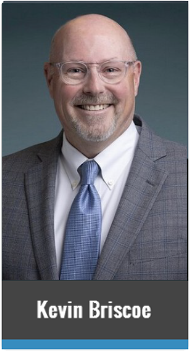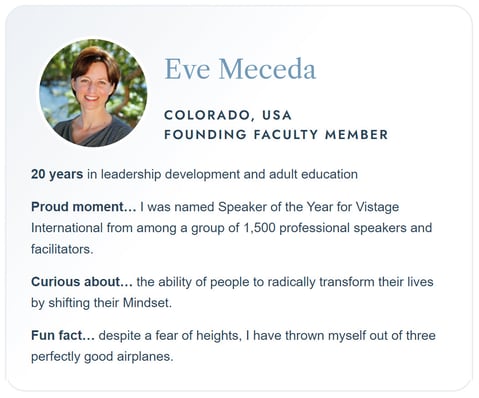
I've been pondering the narrative around an economic recession for this entire year, along with many of you. Candidly, the discussion reaches back into 2022. Economists were wrestling with whether the consequence of the US Fed's economic tightening would lead to a recession. Or if the economy had so much momentum, while economic activity would slow, we wouldn't enter a technical recession.
(Ed: I won't spend much time offering technical rationale in this post. Ultimately, it's not the point I'm discussing. However, to frame the article, I'll define an economic recession as two consecutive quarters of declining GDP growth.)
Flash forward to the end of Q2 2023, and I'd offer a recession is likely, though probably not declared until Q1 2024.
That said, what I've been pondering is the real impact of what I'll call "recessionary thinking." And by that, I mean performance manifesting because of assuming something is likely to happen. In this case, when your business is seeing a downturn, in part because you expect it will have a downturn.
I speak with new and existing clients daily. A common element of those discussions is how their business is performing and what they expect will happen in the coming days, weeks, and months. The discussions vary widely. But the CEOs, owners, and executives I speak with fit into four basic categories. And more specifically, I'm referring to their mindset as it relates to future events.
- Defiantly Optimistic – Essentially, the executive will tell me, "We decide our future! Nothing's going to stop us!"
- Cautiously Optimistic – These folks believe they can achieve a positive outcome. They recognize recessionary forces are fundamental. But have a strategy they believe can overcome those concerns. Or they don't think they will be impacted like other businesses.
- Cautiously Pessimistic – The organization may operate in an industry already showing signs of significant weakness or amid an operational effort influencing its ability to perform. As a result, they believe less than stellar financial performance is likely, and they're beginning to modify their decision-making to accommodate that outcome.
- The World is Ending! – OK, that's overstated. But you likely know what I mean. When I hear things like, "I am not sure what can turn this around." Or "We see a big hole in the fourth quarter." Ultimately, it suggests leadership is at a loss regarding how to influence their future. The more jaded of us should be reminded that “Hope is Not a Strategy!”
Given relatively recent events economically (and by that, I'm referring to the Global Pandemic that is only recently declared ended and is still influencing how some organizations operate), I'd be incredibly remiss not to point out that certain economic activities genuinely are beyond your control. When State and Federal agencies dictate that you can't operate in a "normal" manner, economic performance is no longer a matter of choice. None of those above categories comment on navigating a recession in the context of events out of your control.
Your mindset and the organizational preparedness that comes from that mindset are significant factors in how businesses perform.
From the categories above, I imagine you can guess which companies are faring better than others. You may not realize that any of the first three have the potential to perform at, or ahead of planned results based on how they manage their mindset and translate that into operational strategies.
 Said another way, even leaders who have moved into a pessimistic frame of thinking can overcome that with a solid strategy and disciplined execution. Am I guaranteeing anything here? Absolutely not. But I suggest you can beat the implications of a recession and overcome other challenges with your business with a thoughtful and informed strategy. Remember, I said it's about mindset. But I didn't say it's a specific mindset.
Said another way, even leaders who have moved into a pessimistic frame of thinking can overcome that with a solid strategy and disciplined execution. Am I guaranteeing anything here? Absolutely not. But I suggest you can beat the implications of a recession and overcome other challenges with your business with a thoughtful and informed strategy. Remember, I said it's about mindset. But I didn't say it's a specific mindset.
My business offers over 100 financial professionals who serve small to mid-market companies in need of help with their strategy and execution.
I will be the first to tell you CFOs are often the most pessimistic executives in a company's leadership! I mean dyed-in-the-wool, full-on cynics! These folks are professionally trained to ask questions, poke holes, and assume the worst outcomes as part of their planning process.
At the same time, they can be the most brilliant strategists you have ever worked with. They can find their way through any challenge with enough time to plan and act. They are an essential element of any successful leadership team.
This is how I know that pessimists can be successful!
That said, I'll certainly allow that if you can keep yourself optimistic, it's bound to be easier and less frustrating to find your way to success.
Someone who helped our team to be mindful of Mindset is Dr. Eve Meceda. She has done a great deal of work on the differences between a Fixed versus a Growth Mindset.
- Fixed Mindset – Resist change, struggle with feedback, have a default response as “no,” always need to be right, and are highly risk-averse.
- Growth Mindset – Highly adaptable and welcoming feedback, embracing challenges, open to new ideas, and love to try new things.
Circling back to my initial thoughts, the idea of a recession leading to adverse outcomes is, now, just that—an idea. We won't indicate a technical recession until it happens. As I noted, that won't likely be until early next year. In the meantime, we can overcome those expectations by planning and preparing for an outcome that doesn't lead to a decline in performance. And we can do so within our means.
We choose to develop a strategy and execute that strategy with exceptional focus.
If you find yourself in need of part-time or project-focused CFO assistance, CFO Selections can help. You can contact Kevin here or the firm here.
About the Author
 Kevin Briscoe is the Managing Partner of CFO Selections®, and stewards the culture and core values of the organization, including supporting the firm's philanthropic work through the CFOS Foundation.
Kevin Briscoe is the Managing Partner of CFO Selections®, and stewards the culture and core values of the organization, including supporting the firm's philanthropic work through the CFOS Foundation.
Throughout his career, Kevin has held ownership and management positions, providing effective leadership in increasing profitable growth. His professional career includes nearly 30 years in finance, accounting, and operations from Fortune 100, publicly traded corporations to small, closely held settings. Before joining CFO Selections® in 2007, Kevin was part owner of a successful lighting representative business, helping drive their growth from $30 to $70 million. He has also served as a financial member of South End Equities, where he was responsible for the purchase and management of a commercial real estate portfolio. His extensive experience in business strategy, management, and operations assists him in leading the firm.
Kevin earned a Bachelor of Business Administration degree in accounting from Gonzaga University.
He currently serves as Board Advisor for The Linehan Institute, and has served as a past Board member of the Electric League of the Pacific Northwest Charitable Foundation, as Co-Chair for the American Cancer Society ‘Race for a Cure’ benefiting Breast Cancer research, and also enjoys playing softball in Kent, where he lives with his wife and enjoys spending time with his four children and many grandchildren.






